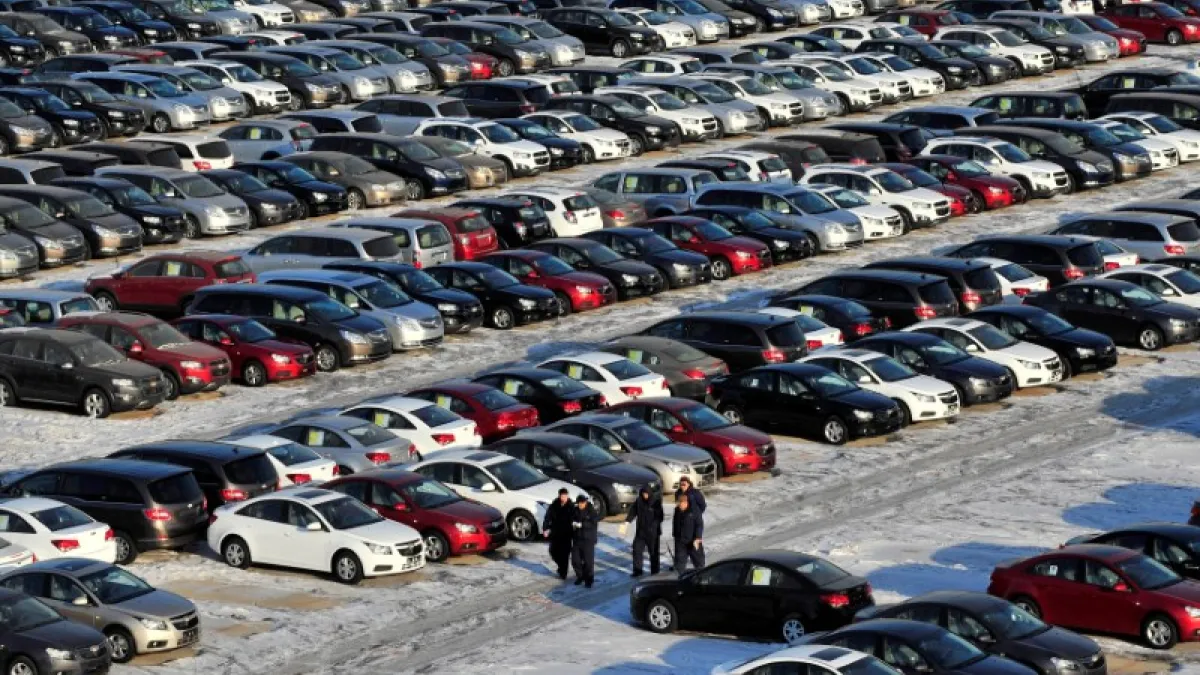
President Trump announced on Wednesday that he will impose a 25% tariff on foreign-made cars and light trucks starting on April 2, adding to the growing list of enacted or threatened import taxes that have rattled markets and set the stage for an escalating global trade war.
The tariff will also apply to American brands that are assembled outside of the country, including Mexico and Canada. Trump White House aide Will Scharf said the tariff could produce $100 billion in tariff revenue annually, though Trump bumped that number to $600 billion to $1 trillion as he signed the order. The U.S. imported about $220 billion worth of foreign vehicles in 2024, accounting for nearly half of all sales.
Trump said the tariffs are part of his effort to put an end to the “rip off” of foreign trade by sharply reducing imports and thereby boosting domestic production. “We’re going to charge countries for doing business in our country and taking our jobs, taking our wealth, taking a lot of things that they’ve been taking over the years,” he said. He also described the tariffs as “permanent” and said he is not interested in negotiating exemptions.
Earlier in the day, Trump claimed that his tariffs are already pushing manufacturers to increase their investments in the U.S., citing an announcement earlier this week by Korean auto giant Hyundai that it plans to invest $5.8 billion in a Louisiana steel mill.
Trump has also promised to unveil new “reciprocal” tariffs on trading partners around the world starting on April 2. According to reports, those tariffs will roughly mirror the import taxes, manufacturing subsidies and consumption taxes in place overseas, though Trump said Wednesday that the levies would be more modest than some analysts have assumed.
Automakers not happy: The auto industry has warned that additional tariffs could be severely damaging to their market. Jonathan Smoke, chief economist at Cox Automotive, said Wednesday that new tariffs would be “highly disruptive” in North America, which operates as a unified manufacturing zone, potentially leading to a drop in supply, a jump in prices and a “much weaker economy.”
The industry has repeatedly warned that higher tariffs will mean increased prices. An analysis cited by Bloomberg estimates that new tariffs on imports from Canada, Mexico and China will raise the price of popular crossover models by $4,000, while electric vehicle prices could increase by $12,000 per unit.
“Storm clouds are forming on the horizon,” Smoke said, per USA Today, adding that problems could emerge within a matter of days as the new tariffs take effect.